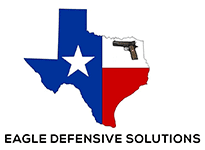Increased Shootings Ramp Up NRA Concealed Carry Bill
Increased Shootings Ramp Up NRA Concealed Carry Bill
WASHINGTON – America’s recent mass shootings have increased pressure from gun-rights advocates to pass the National Rifle Association’s top legislative priority:a bill to make it easier to carry concealed weapons across state lines, the bill’s author said Thursday.
Rep. Richard Hudson, R-N.C., told USA TODAY the shootings at a Las Vegas concert and Texas church have only intensified his colleagues and constituents’ interest in the Concealed Carry Reciprocity Act.House leaders assured him this week that they are committed to getting the bill to the House floor for a vote before the end of the year, he said.
For many Americans, he said, the horror of the shootings reinforced the belief that carrying a concealed weapon is an important way to protect and defendthemselves.
“If anything, the tragedy in Texas underscores why we need to protect law abiding citizens who choose to defend themselves with a concealed weapon,” Hudson said. “It certainly hasn’t changed the timeline. My colleagues have been asking me all week, ‘Are we going to be moving your bill? This is important.'”
Agunmanopened fire ina churchin Sutherland Springs, Texas, on Nov. 5, killing 25 people including a pregnant woman whose unborn baby also died.
The bill would require each state to recognize concealed carry permits from every other state – as they would a driver’s license – regardless of different permitting standards. Residents of several states requiring no permits would be able to carry their weapons in other states that allow concealed carry, as long as they abide by local laws.
Read more:
Texas shooting prompts congressional GOP to talk about fixing background checks
Timeline: How Congress has responded to mass shootings
The NRA has lobbied intensely for thebill, urging for its passage as part of its response to the Las Vegas shooting in October that killed 58 people and woundedmore than 500. They say it would eliminate a confusing patchwork of state concealed-carry laws and reciprocity agreements that can cause a law-abiding gun owner to unwittingly break the law while traveling out of state.
“The underlying question is, should you lose your right to defend yourself when you cross the state line?” NRA lobbyist Chris Cox said in an interview with USA TODAY last spring.
Hudson said his bill prevents law-abiding gun owners from becoming criminals, just by crossing a state line.
“If I drive from my home in North Carolina through Virginia to D.C., I don’t have to stop at the state line and take a new driver’s test, get a new license,” he said.
Gun control advocates say forcing states with strong permitting standards to honor permits from those with weaker ones will endanger public safety and make it harder for police to enforce gun laws. While every state and the District of Columbia allows the carrying of concealed weapons in some form, 38 states generally require a state-issued permit to carry in public and the remaining 12 generally allow gun owners to carry concealed weapons in public without a permit, according to Giffords Law Center.
“It’s a very dangerous bill. We’ll work very hard to oppose that,” said Avery W. Gardiner, co-president of the Brady Campaign to Prevent Gun Violence. “Driver’s licenses come with road tests, with written tests, with insurance requirements. Concealed carry permits usually don’t. There are some states with very few requirements.”
Last month,17 state attorneys general opposed the bill in a letterto House and Senate leaders, arguing it would override local public safety decisions and endanger communities and police.
“Rather than creating a new national standard for who may carry concealed firearms, these bills would elevate the lowest state standard over higher ones and force some states to allow concealed carry by people who do not qualify under their laws,” wrote the attorneys general, led by Eric T. Schneiderman of New York.
Hudson said criticisms of his bill are “emotional concerns” and “the facts just don’t bear it out.” His bill does not increase access to weapons or expand the places where people can carry weapons.
“We were careful to recognize the rights of states and municipalities to set their own restrictions,” he said. “If (New York City) bans concealed carry in Time Square, concealed carry holders would have to follow that law.”
A similar Senate bill by Sen. John Cornyn, R-Texas, has 38 Republican co-sponsors. An earlier version of Cornyn’s bill came within three votes of advancing in 2013. The measure needed 60 votes butfailed 57-43.
“I do think we’ve got a chance,” Hudson said.
Originally Posted on USA Today
__________________________________________________________
The License To Carry formerly known as a Concealed Handgun License is commonly referred to as a gun permit, concealed carry license, CCW, concealed carry, handgun license, handgun permit was changed to License To Carry on January 1,2016.
There are many myths out there about handguns and the LICENSE TO CARRY, our job is tell you what the laws and facts are and put any myths to rest during class, so you know the truth. We believe in paying special attention to handgun safety and Situational Awareness, to help teach students how to avoid situations.
Be sure to visit our class schedule page to sign up for our next license to carry class.
For questions please feel free to contact us at 817-247-2990.

